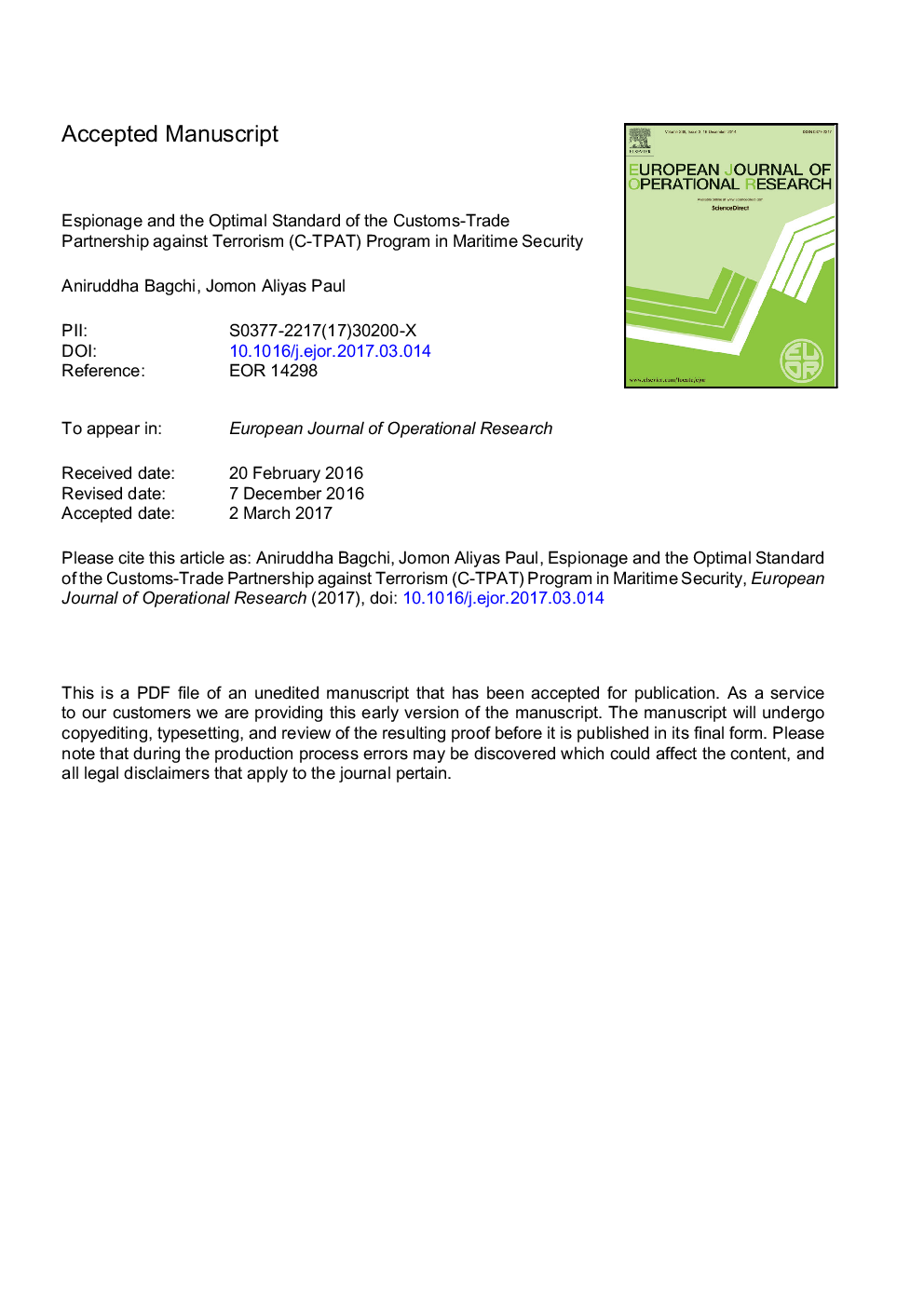| Article ID | Journal | Published Year | Pages | File Type |
|---|---|---|---|---|
| 4959705 | European Journal of Operational Research | 2017 | 40 Pages |
Abstract
We examine the design of a trusted trader program in the U.S. known as C-TPAT (Customs-Trade Partnership against Terrorism). For this, we consider a game between the government, an importer and a terrorist group. The government provides maritime security using three policies: (i) Standard of the C-TPAT program, that is, the degree of security of the supply chain that is required of a member, (ii) Quality of intelligence about the terrorist group, and (iii) Inspection of Cargo. In equilibrium, the government sets the standard of the program at a level that minimizes congestion. However, the optimal espionage expenditure is less than the level that minimizes congestion. We also endogenously determine the membership size of the program and show that it depends non-monotonically on policies such as the standard of the program or the quality of intelligence. Finally, we examine the impact of parametric changes on these policies.
Related Topics
Physical Sciences and Engineering
Computer Science
Computer Science (General)
Authors
Aniruddha Bagchi, Jomon A. Paul,
